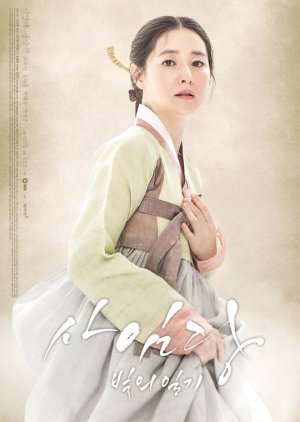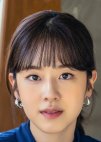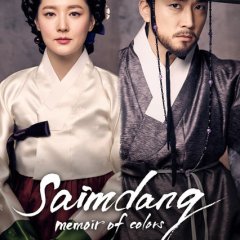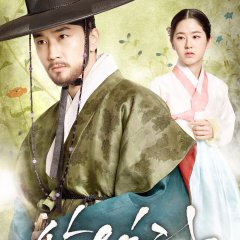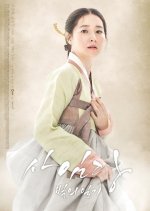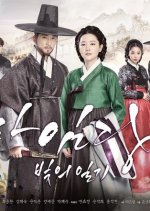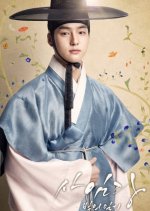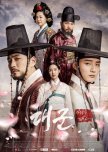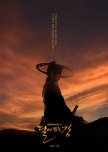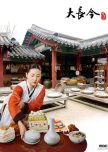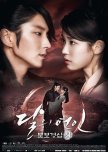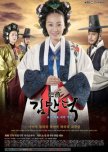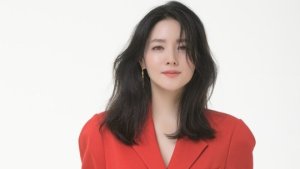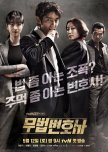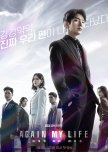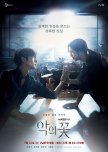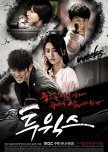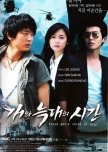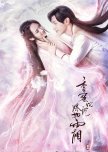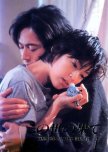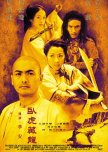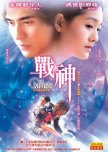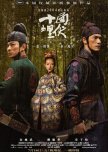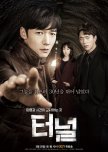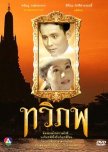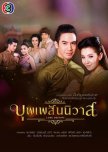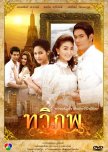 Park Ji Hyun will reportedly join Ahn Bo Hyun in a new K-drama
Park Ji Hyun will reportedly join Ahn Bo Hyun in a new K-drama Seo Ji Yoon est une professeure d'histoire de l'art qui tombe sur le journal secret de Shin Saimdang (1504-1551), une artiste, écrivaine, maître calligraphe et poétesse coréenne, mère de Yi I, l'une des plus grandes figures des érudits du confucianisme coréen lors de la Dynastie Joseon. Le journal met en lumière de nouvelles informations sur la vie de Saimdang et sa relation avec Lee Gyeom, un peintre, calligraphe et musicien coréen, ami d'enfance et âme sœur de Saimdang. Le journal va-t-il pouvoir aider Ji Yoon à percer le mystère d'un tableau d'une femme inconnu hérité de la Dynastie Joseon ? (Source: MDL; Translation: ceci_06 at MDL) Modifier la traduction
- Français
- Español
- magyar / magyar nyelv
- dansk
- Titre original: 사임당, 빛의 일기
- Aussi connu sous le nom de: Saimdang, the Herstory , Saimdang, Bitui Ilgi , Saimdang, Memoir of Colors
- Réalisateur: Yoon Sang Ho
- Scénariste: Park Eun Ryeong
- Genres: Historique, Mystère, Romance, Mélodrame
Où regarder Saimdang, Light’s Diary
Distribution et équipes
- Lee Young Ae Rôle principal
- Song Seung Heon Rôle principal
- Oh Yoon Ah Rôle principal
- Yoon Da Hoon Rôle principal
- Park Hye SooSeo Ji Yoon / Shin Saim Dang [Young]Rôle Secondaire
- Yang Se JongHan Sang Hyun / Lee Gyeom [Young]Rôle Secondaire
Critiques

Visually stunning with a truly poetic story. Insights into the early 16th century art included
"Saimdang, Memoir of Colors" is an excellent KDrama with historically impressive dimensions. The focus here is on the legendary artist Shin Saimdang, whose head is also depicted on the 50,000 won note today. The KDrama pays tribute to the great artist and also pays tribute to her roles as a devoted mother and virtuous, yet uncompromisingly progressive woman. The focus is on a time and space transcending, tragic love story - fictitious... or at least not historically documented. (But why should´t it have happened in this way or another? ... :-)----------------- SIDE NOTE --- Shin Saimdang (1504 -1551) ---
... was a painter, calligrapher and poet who was valued in her time and far beyond. Since her father had no son, he gave her (rather unorthodox for a girl) an education and training in literature, poetry, calligraphy, embroidery and painting. Her works as a painter are characterized by their particularly sensitive view of nature and its subtle, sensitive representation. Today only about 40 paintings in Indian ink and mineral colors can be directly assigned to Saimdang. However, it is suspected that many more works of art have survived, although they are not clearly signed as her works. Shin Saimdang has also gone down in history as the ideal of the good mother. She had five sons and three daughters, some of whom also inherited their mother's talent. One of her sons is the even more famous Neo-Confucian scholar and politician Yul-gok Yi I.
-----------------------------------------------------------------------------
In addition, as far as the perspective of traditional art is concerned, the special focus of this KDrama is the nature of the world of animals, plants and mountains. Actually, it could be mentioned here, that South Korea is characterized by several mountains and 21 national parks on more than two thirds of the country's surface. This KDrama aesthetically focuses on the spiritually legendary mountain region around the Geumgangsand - The Diamond Mountain. It probably got its name in connection with the Diamond Sutra of Buddhism. It was a center of Korean Buddhism, traces of which can be dated back to the 1st century. At the beginning of the 20th century there were still more than 40 active monasteries in the region. In any case, the mountain world plays in several respects an important role in this gripping historical drama.
Special dynamics arise through the play with intertwining time and space. There are two plots. One is set in 2017, the other in the early 16th century during the Joseon era. One follows a young art historian writing her PhD thesis on artist An Gyeon's work 'Geumgangsando'. The other follows historical Shin Saimdang through the first 3-4 decades of her passionate yet virtuous life. Parallel to the art historian's research and struggle with it, that is at the same time enhanced and endangered by Saimdang´s diary, insights on the artist´s eventful life are revealed. Both storylines are quite exciting in their own way. Particularly charming: people from Saimdang's time-line seem to have reincarnated in Seoul in 2016 and are once more somehow connected to each other... Surprisingly, the fulcrum where the timelines converge is Tuscany in Italy.
This extraordinary and visually stunning KDrama offers a truly poetic, heart-rending story, added with interesting insights into the special aesthetics and sensitivity of contemporary Korean art of the early 16th century, as well as the paper production craftmanship of that time. It is rounded by an atmospheric soundtrack and, last but not least, actors who are as if absorbed in their roles. At last, there is plenty of makjang, too.
Taking everything into account, the story is effortlessly captivating over 28 episodes.
At the end I was left in bewilderment, yet to some extend somehow surprisingly satisfied, too.

Story
Having had studied Art History in Uni and with it being my favourite module, you can understand my initial excitement when I realized this is a drama about art history but in Korea! Only 2 of my biggest interests intertwine like that. I wouldn’t miss the chance to savour this rare opportunity!
Saimdang is a wonderful drama but not without flaws. It takes place simultaneously in the past and the present, depicting the past and present lives of the characters. Starting in the present it centers on a woman who tries to prove that a painting is or is not authentic facing serious enemies in this endeavor of hers.
Simultaneously and very flexibly the story travels to the past as we get to see the whole story behind the painting in question and how this is connected to our main flawless female character Saimdang and her life.
I can totally understand why viewers found this boring and disappointing. Most of the drama depicts Saimdang’s life but focuses a lot on events rather than romance, politics or other juicy things saeguks are known for. First half of the drama focuses on how Saimdang grew to become a memorable and powerful figure of her time creating and sustaining her own business. There are classic villains who try to destroy her but everything is more connected the job development rather than her personal life. The second half was a bit rushed because of the trimming of 2 episodes and the re-editing was very obvious to the point it reduced the drama’s quality. Still, it stays in the same lane of events.
I read comments from Korean netizens expressing their disappointment in the drama’s direction. More specifically, they disliked the fact that there wasn’t much of Saimdang’s drawing and painting showed. I cannot argue with that. Simultaneously, I can safely say the story line that took place in the present was rather disappointing and ill-developed. I can totally understand their idea behind it but they spent too much time perfecting the past story –which ended up being, understandably, a tad boring for some people- that the present one just rounded up being a constant back and forth.
All that being said, I cannot quite put my finger on it but this drama just charmed me to the point I was completely unfazed by all the -otherwise- stern drawbacks.
I thoroughly enjoyed the backstory. Some of it a bit clichéd – classic evil 2nd female lead who is just too self-centered for her own good- but all of it really interesting and really well-written as far as I’m concerned. Against all odds, I loved the business part of the story, it was inspirational seeing a woman overcome so many pitfalls and achieve greatness!
One of the main parts that I especially appreciated was the female empowerment of the drama. Saimdang on her own is such an incredible character, empowering and just inspirational. Even if we barely got to see her drawing, the passion for it was well-depicted and the characterization was just brilliantly presented!
Moreover, I enjoyed several parts of the past story illustrated like the education for non-wealthy citizens, or how women were looked down upon but were undeterred by it. Plotlines that involve weak and easily manipulated kings are nothing new and play significant roles here as well.
Continuing to my favourite part, the romance. I'm not the biggest romance fan, I tend to rather cringe but here… here it was special! I can understand why some people would find the romance here disappointing. There is no skinship at all; barely any intimacy while everything is kept on a platonic level. Rather frustrating. However, there is no need for obvious affection when you have Song Seung Heon’s eyes just depicting everything better than a gesture ever could. My heart ached in every scene he looked at Saimdang and I was completely blown away by their tragic and heartbreaking love story. Strongest part of the drama for me, but you have to be into doomed couples to like this.
The drama did have some boring parts, but I enjoyed it throughout. I can’t say I felt fulfilled by it, rather depressed especially during the last 5 episodes, but it just felt special in ways I can’t put into words.
Acting
Overall exquisite.
Lee Young Ae. Acting giant and I feel a bit intimidated to actually judge her acting. She was amazing, overflowing with charm and experience; she was a blast to watch on screen. I thoroughly hope it won’t take her another decade to comeback.
Song Seung Heon was luscious in ways I can’t describe. I usually complain about kdramas lacking actual manly characters since all those flower boys have taken the industry by storm. He brought exactly what I wanted to see. Manliness, masculinity all spiced up with actual emotions and sentiments. His character just elicited unlimited emotions out of me, his acting was out-of-thing-world good and he had amazing chemistry with Lee Young Ae.
Other than them, the full casting was amazing and most of it quite memorable, namely Oh Yoon Ah as the evil 2nd female lead, Choi Jong Hwan, Yang Se Jong and the rest really made the drama shine.
Recommend
Considering most of the reaction I saw was rather negative or indifferent I wouldn’t openly recommend this to everyone. Saeguk fans would probably like it and people interested in tragic and unfulfilled love.

